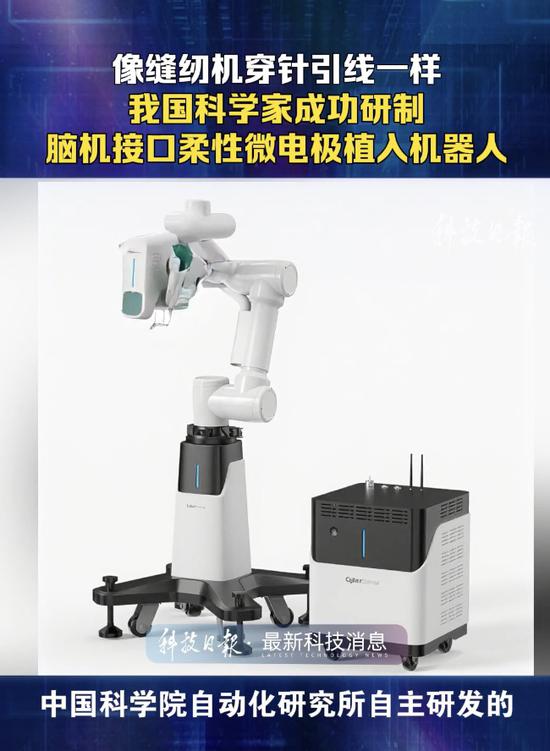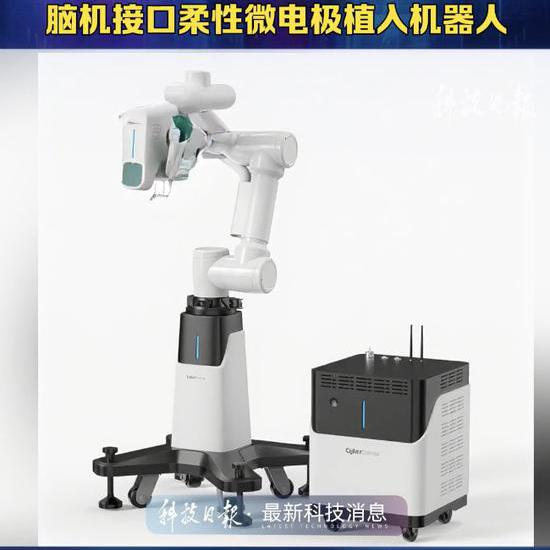Chinese scientists develop robotic system for precision Brain-Computer Interface electrode implantation

(Photo/Science and Technology Daily)
Researchers at the Institute of Automation, Chinese Academy of Sciences, have successfully developed a flexible microelectrode implantation robot named CyberSense, marking a significant advancement in brain-computer interface (BCI) technology, according to Science and Technology Daily on Thursday.
The robot functions with the precision of a sewing machine, delicately threading ultra-thin, hair-like flexible microelectrodes into animal brains. This innovation provides strong support for both BCI development and neuroscience research.
Implantable BCI is an extremely interdisciplinary field that involves key technologies such as microelectrodes, chips, neurosurgery, artificial intelligence, and neural decoding. It demands close collaboration and innovation across multiple scientific domains.
"Today's implantable electrodes are thinner and more flexible than a strand of hair, which significantly reduces surgical trauma and the risk of immune rejection," Yu Shan, a researcher at the institute was quoted as saying in the media report. "But when it comes to delicately wiring something as fragile as brain tissue—soft as tofu—it's beyond the capabilities of human hands. That’s where a robotic 'lead surgeon' becomes essential."
Yu added that highly automated robotic systems like CyberSense are becoming central to the advancement of BCI technologies, enabling precise, minimally invasive procedures that were previously unimaginable.
CyberSense features a high degree of automation, the ability to implant a large number of electrodes, precise spatial positioning, high time efficiency, and the flexibility to avoid blood vessels, Qin Fangbo, associate researcher and project lead at the institute, was quoted as saying in the media report.
These advantages significantly improve both the success rate and the quality of electrode implantation, and the robot is compatible with a wide range of flexible microelectrode models and is suitable for cortical implantation in animals including rodents and non-human primates, according to the report.
CyberSense has already been used to support the implantation of various electrode types developed by institutions such as the Institute of Semiconductors at the Chinese Academy of Sciences and Shenzhen-based company We-Linking. These applications are advancing research in BCI and neural electrophysiology, according to Yu.
The research team plans to further expand the CyberSense product line in the future, contributing to the rapid development of brain-computer interface technology and brain science in China, according to the Science and Technology Daily.

